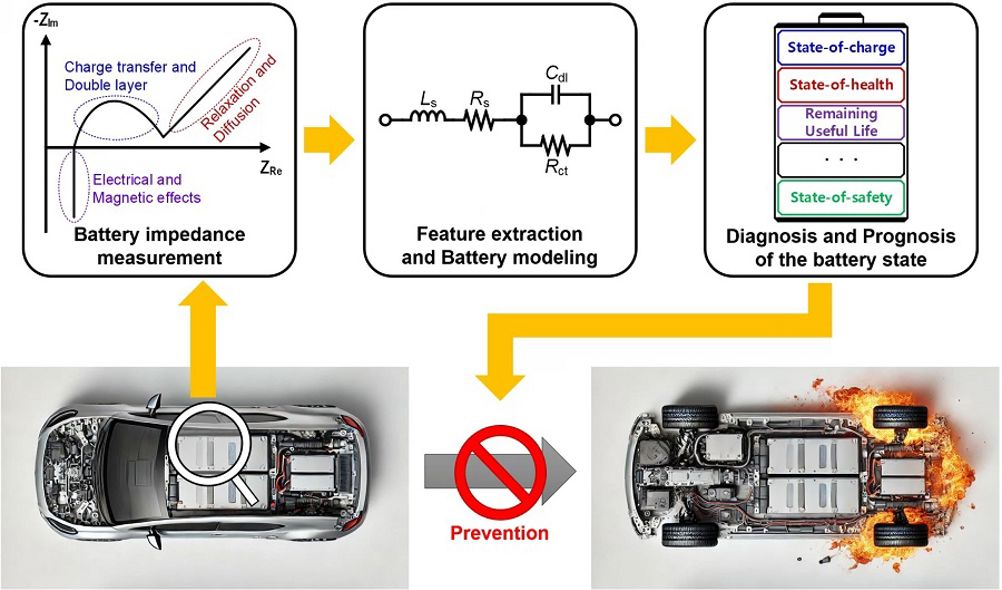Led by Professors Kyeongha Kwon and Sang-Gug Lee from the KAIST School of Electrical Engineering, the team has developed an electrochemical impedance spectroscopy (EIS) tool that can be used to improve the stability and performance of high-capacity batteries in electric vehicles (EVs).
An EIS tool can measure the impedance magnitude and changes in a battery, allowing the evaluation of battery efficiency and loss. It is considered an important tool for assessing the state of charge (SOC) and state of health (SOH) of batteries.
Additionally, the technology can be used to identify thermal characteristics, chemical and physical changes, predict battery life, and determine the causes of failures.
However, according to the KAIST research team, traditional EIS equipment is expensive and complex, making it difficult to install, operate, and maintain. Due to sensitivity and precision limitations, applying current disturbances of several amperes (A) to a battery can also cause significant electrical stress, increasing the risk of battery failure or fire and making it difficult to use in practice.

To address this, the research team developed and validated a low-current EIS system for diagnosing the condition and health of high-capacity EV batteries. This EIS system can precisely measure battery impedance with low current disturbances (10mA), minimising thermal effects and safety issues during the measurement process.
The researchers said that the system also minimises bulky and costly components, making it easy to integrate into vehicles. It was proven effective in identifying the electrochemical properties of batteries under various operating conditions, including different temperatures and SOC levels.
In a statement, corresponding author of the study, Professor Kyeongha Kwon, said: “This system can be easily integrated into the battery management system (BMS) of electric vehicles and has demonstrated high measurement accuracy while significantly reducing the cost and complexity compared to traditional high-current EIS methods. It can contribute to battery diagnosis and performance improvements not only for electric vehicles but also for energy storage systems (ESS).”
The study, published in IEEE Transactions on Industrial Electronics, was supported by the Basic Research Program of the National Research Foundation of Korea, the Next-Generation Intelligent Semiconductor Technology Development Program of the Korea Evaluation Institute of Industrial Technology, and the AI Semiconductor Graduate Program of the Institute of Information & Communications Technology Planning & Evaluation.
More from Automotive











McMurtry Spéirling defies gravity using fan downforce
Ground effect fans were banned from competitive motorsport from the end of the 1978 season following the introduction of Gordon Murray's Brabham...